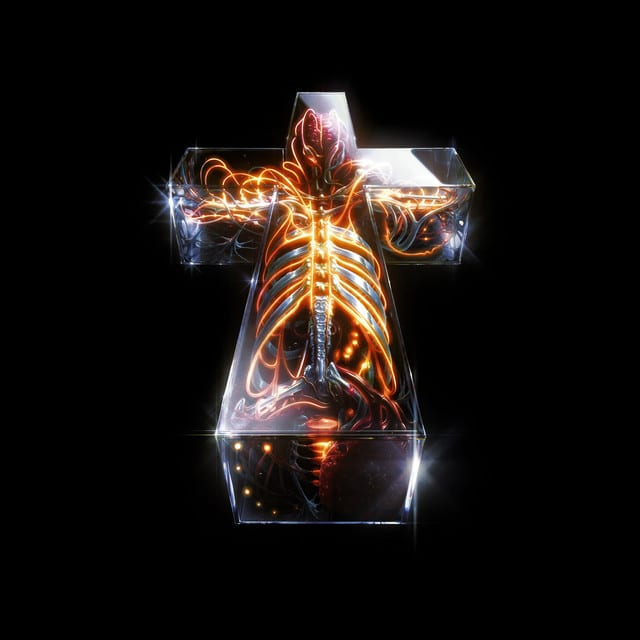Released: 2024
Features: Miguel
At first glance, “Saturnine” by Justice featuring Miguel appears to be a powerful testament to the transformative and intoxicating power of love and passion. Miguel’s smoky vocals paint a vivid picture of one losing himself in the flame of a tumultuous relationship, with repeated allusions to dancing in the flames illustrating the reckless, yet euphoric, nature of the affair.
The song opens with “Flashes in waves don’t try to save me now / And it always hits the same way”, setting the stage for the cyclic and intense nature of the emotional experience. Here, the garnished metaphor of “flashes in waves” speaks to the overload of sensations and feelings that flood in, which Miguel welcomes wholeheartedly, much like a storm-chaser chasing a tempest. Dancing in the flames, he acknowledges, might sound dangerous to the outside world, but the pull is too strong for him to resist.
Justice masterfully weave the narrative forward by introducing the lines “The night inviting / The swirling tides of your touch / Sharp tongues that cut too deep / Maybe I like it too much, yeah / But I like feeling the rush”. This verse encapsulates an intense love affair which, albeit causing pain, brings exhilaration and thrill. The sharp tongues that cut too deep and the intense rush Miguel likes so much, could be his way of expressing the hurtful moments and the passionate highs in the relationship.
Moving on, Miguel reflects, “Safety and warmth in your arms / My thoughts begin to bleed / I think I’m thinking too much”, showcasing that despite the wild passion, he seeks solace and comfort in his partner’s arms. However, his overthinking tendencies come to light, potentially suggesting that he’s aware of the danger in this passion.
Throughout the song, the repeated refrain of “I’m still dancing in the flames” solidifies Miguel’s acceptance of this burning love, despite the danger. He compares the end of these fiery encounters to the sun phasing him out or taking him down, portraying the sun as a signifier of reality or sobriety intruding on his passionate dreamscape. But like a moth to a flame, he returns to the dance time and again, seemingly addicted to the rush and heat of the relationship.
In conclusion, “Saturnine” is a confession of a man helplessly drawn to a flame that could consume him; a testimony to love’s chaotic and destructive, yet intoxicating, allure. It’s the voice of a man who, against better judgement, chooses to surrender himself to a passionate love affair that he knows may not end well, but he’s perfectly okay with it. Ain’t that just like pop music to tell us love’s not always rainbows and butterflies!








